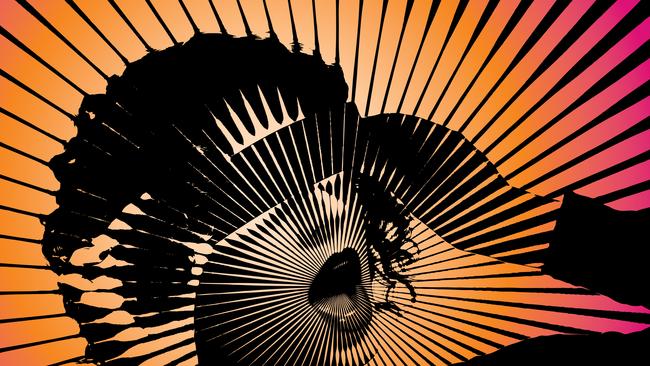Baby boomers beware, millennials have won this battle
Covid and lockdowns have converged with a generational shift to fundamentally change the way we see careers and work.

Baby boomers have taken a long time to appreciate that Generation X and millennials have a completely different view of work, careers and life than earlier generations, according to global executive Gavin Struthers.
The senior vice-president at security software and hardware firm Sophos says connecting with younger workers “where their hearts are” is crucial in the war for talent as companies manage the Great Resignation and the demand for hybrid work.
“Their hearts are not in command and control, hierarchical organisations where work is your primary focus,” says Struthers.
“Whereas boomers felt work was a primary focus, millennials care about diversity, inclusion, community or giving back. They care about fun. They care about work-life balance. I was interested to read a survey from the UK in March where 39 per cent of HR decision-makers said that their people were not a strategic priority for an organisation. If people are not a top three priority for an organisation, you will have a problem through resignations.”
Struthers’s remit covers the Asia-Pacific and Japan and he spent five years in Singapore before settling in Sydney in February. The firm develops products for communication endpoint, encryption, network security, email security and mobile security for organisations of between 100 and 5000-seat employees. Sophos has about 3800 staff globally, 100 of whom are in Australia.
In a recent survey, only about 4 per cent of Sophos staff globally said they wanted to work full time in the office, with most people wanting only one or two days in the office. In response the company has rolled out a “work from anywhere” model, with different roles having different check-in arrangements.
“But it’s really pressure off because most of the work can be done remotely,” Struthers says. He says boomers took time to appreciate the powerful drivers for millennial workers but in the past decade leading organisations have been much better at “entertaining the millennial dynamic”.
“I’d say in the past five years, boomers have certainly woken up,” he says. “And if they haven’t, they’ve moved on or moved out because others have replaced them. Because organisations need a modern agenda.”
Struthers says the Great Resignation is real, especially in the tech sector as people coming out of Covid rethink work-life balance and career changes.
He cites the case of “one of our business development reps (who) decided they wanted to go and work at a high school because they could walk down the road, and they’re happy to be an administrator”.
This trend is converging with huge demand as business increasingly is digitalised and a cashed-up investment community is buying into tech. In his own area of security, there have been skill shortages before Covid and this has intensified so that now “what you’re seeing is you’re having people being hit up weekly, including leaders and managers, for new roles”.
Overcoming the tech shortages will take time and effort by governments and the commercial community to make tech attractive for people to get the right learning and development.
“We’ve got work to do to make it exciting to get into tech, and take away the techy nature of technology,” he says. “So I think we’ve got work to do on the demand side for making it exciting, putting the right learning programs in place.”
Struthers says the hybrid model is changing the way we see work.
“Let’s use the millennial metaphor,” he says. “It can’t be a grind, it can’t be hard, you can’t have people coming to work and feeling uncomfortable or anxious or unsafe, you’ve got to create safe working places and make it desirable to be there. That ship has sailed, case closed; if you can’t facilitate a working environment that fosters that you’re going to be challenged.”
Struthers says “loyalty is out the window” and managers have to understand that a two or three-year churn is normal whereas they once could have counted on people staying in a job for about five years.
“But millennials will move if they find a working environment, a fun environment, a meaningful environment, a purposeful environment, where there’s a rich menu of initiatives that keep them engaged, and that makes work life more about balance and not more about work,” he says.
He is a big supporter of hybrid: “It’s taking the pressure off a two-hour commute, having to decide what you’re going to wear and doing yourself up for the day. And then running around the world on aeroplanes or running around the city, you know, meetings five times a day.
“I really feel that’s been a good thing for work-life balance.”
But he acknowledges there are some people who struggle with remote work because of lack of space and privacy at home and because they want connection with other staff or because they are not self-starters and have relied on a manager to help drive their work.
“So let’s be clear that it’s probably an 80:20 phenomenon,” he says.
Struthers uses the tag line “humanity first leadership” to talk about the need to treat employees with respect and courtesy, to make them feel safe when they come to work, being transparent and “able to articulate your own vulnerability, like who you are and why you stand for the values you believe in”.



